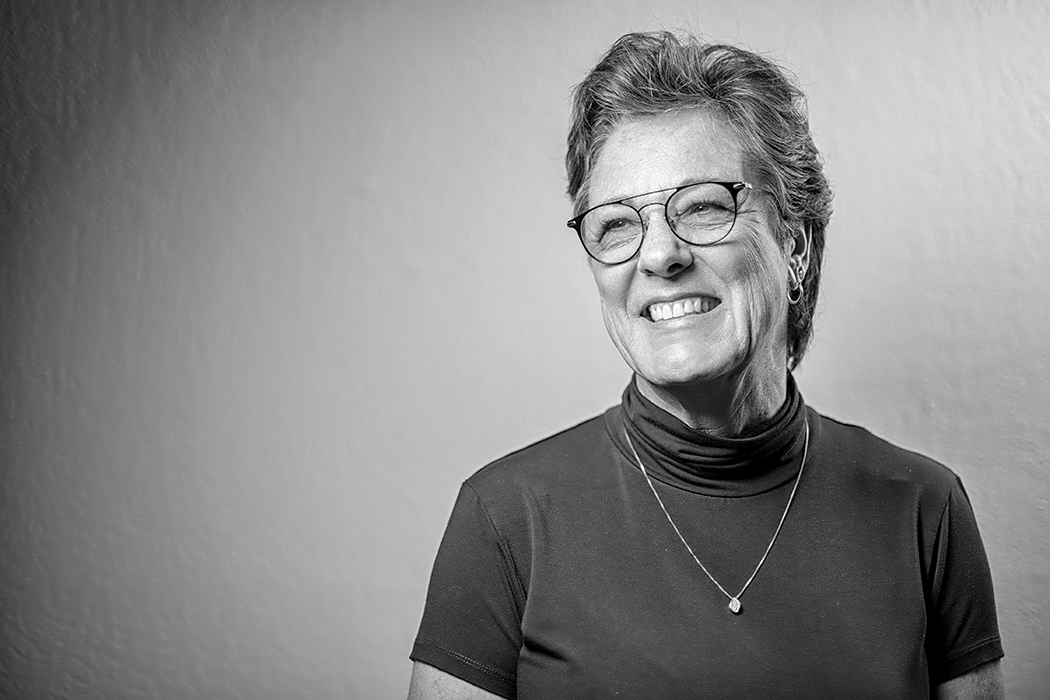
Photo by Danny Fulgencio.
Documentarian
East Dallas neighbor Sherry Briggs never thought she’d be able to marry her partner.
But in 2015, the U.S. Supreme Court legalized same-sex marriage in all 50 states. The ruling was followed by a slew of milestones for the LGBTQ community. In 2016, former President Barack Obama designated a national monument to LGBTQ rights. And in 2017, a federal appeals court ruled that LGBTQ employees are protected from workplace discrimination under the Civil Rights Act.
Despite the freedoms won in the last decade, Briggs remembers the fear of growing up a lesbian woman in the 1970s and ’80s. As she and other openly gay people continue to live and write the story of their movement, Briggs hopes to preserve the community’s past. As a former board member for The Dallas Way, she worked to gather, document, store and present the untold stories of the city’s gay community.
Since 2011, the nonprofit has collected hundreds of written and oral stories that are published online for public access. Eventually, they will be preserved in an archival collection at the University of North Texas for future study.
“It’s important that we document the players, the fights, the progress and the results because our leaders are getting older,” Briggs says. “You have to capture those stories and gather up their history and paraphernalia.
“In 100 years, it’s going to be amazing to see somebody young and say, ‘Look what Dallas did.’”
“It’s important that we document the players, the fights, the progress and the results because our leaders are getting older.”
Just 30 years ago, the LGBTQ community was rarely discussed in Dallas. When a woman came out as a lesbian to Briggs in the early 1970s, she had to ask a friend what that meant. She’d never heard the term.
The community existed underground at gay nightclubs. But the fear of police raids remained. Customers always knew the location of the backdoor, and they knew to travel in packs to avoid being mugged.
“It’s been interesting to see the movement come up from underground and into society,” Briggs says. “People ask me if I’m married, but I still sometimes have that knee-jerk reaction because I don’t know how they’re going to act. When you grow up having to hide who you are, that never really goes away.”
Through her work at several Dallas nonprofits, she hopes to ensure that members of the younger generation never have to hide their sexual orientation. In addition to serving on The Dallas Way board, she has volunteered at HIV and AIDS organizations and helped create a local Human Rights Campaign chapter to lobby for LGBTQ legislation.
“The very first time I walked into a gay bar, I had the feeling that I was home,” Briggs says. “That feeling, even during the most difficult times of being a lesbian woman in a society that thinks there’s something wrong with you, that’s the feeling I hold on to.
“That’s my tribe, and we will fight to hold on to that. If you can find that community, you’re damn lucky. I feel lucky.”





